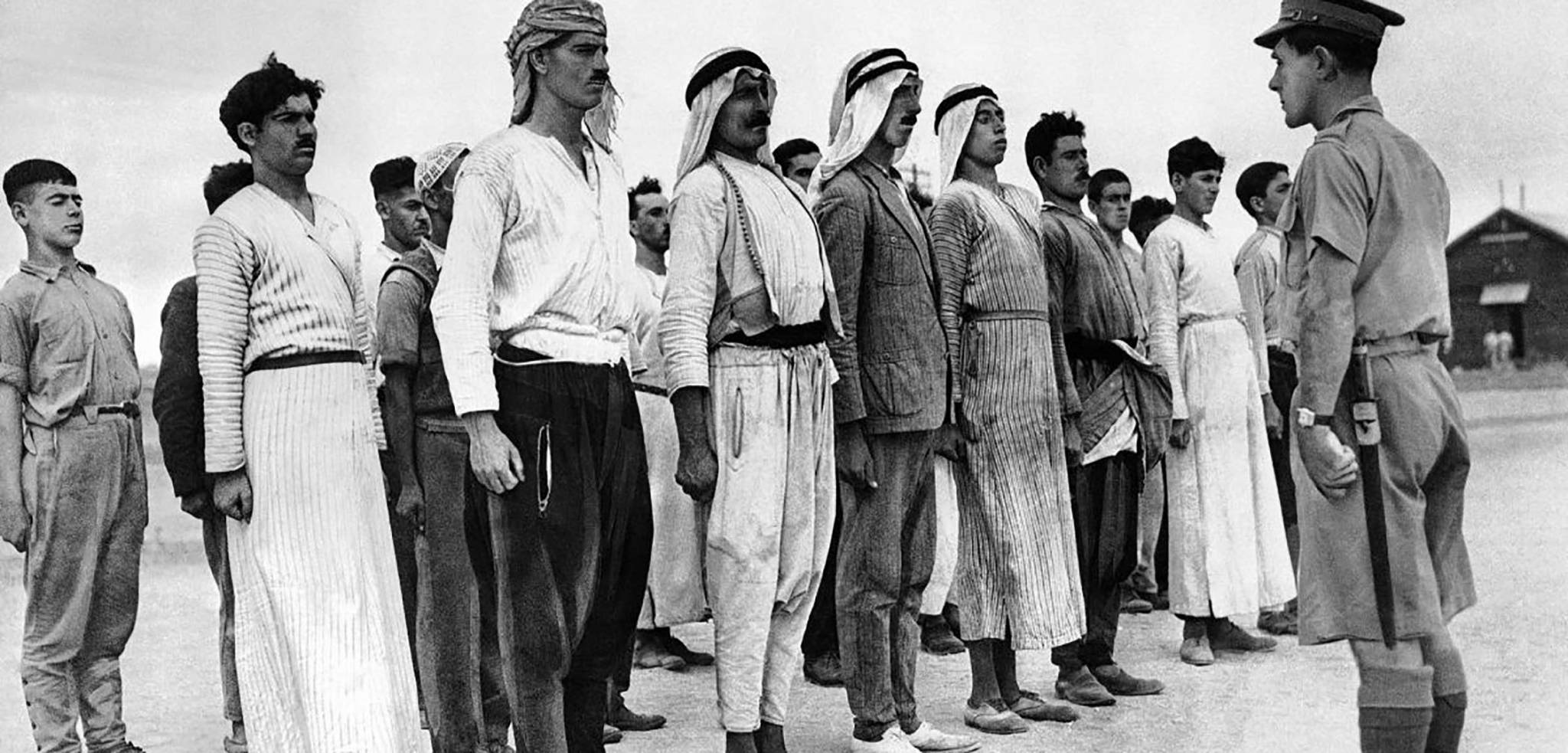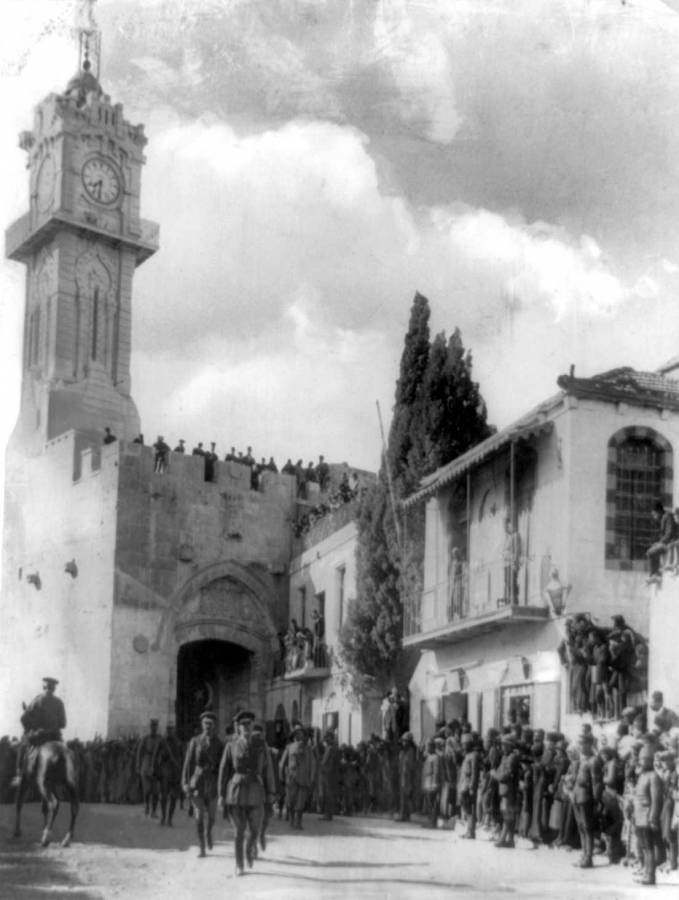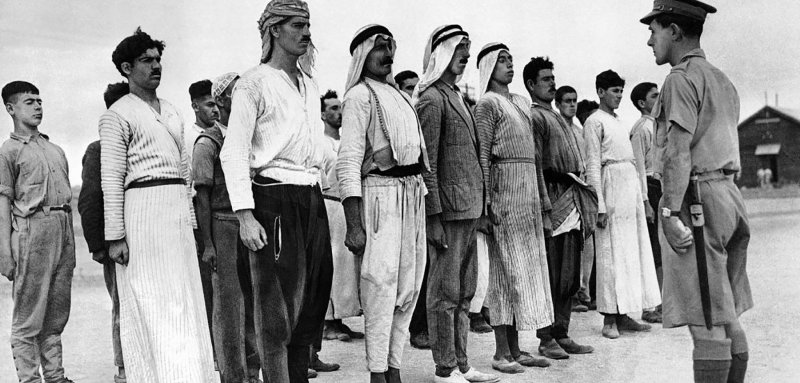A few years ago, Mustafa Abbasi, a professor and historian at the Tel Hai Academic College in Israel, unearthed a collection of newspapers from Mandate-era Palestine. With the information he found in these newspapers, Abbasi was able to piece together the history of the 12,000 Palestinians who fought alongside the British army against the Nazis during World War II.
Subsequent interviews with surviving witnesses, and extensive research in British, Zionist and Haganah archives (the military organization that later became the IDF), allowed Abbasi to shed light on a story largely omitted from historical records.
In a paper published in Catedra titled ‘Palestinians fighting against Nazis: The story of Palestinian volunteers in the Second World War’, Abbasi explores the reasons these volunteers and their contributions have been excluded from history.
12,000 Palestinians volunteered to fight alongside the British against the Nazis during World War II, a fact often overshadowed and omitted from historical records
Why did history forget them?
The priorities of Zionist and Palestinian historians differ. Zionist historians have focused on highlighting the role of Jewish volunteers in the fight against the Nazis, whereas Palestinian historians concentrated on documenting resistance against British rule. The latter showed little interest in glorifying those who collaborated with the 'British colonizers', who had suppressed the Arab revolt just a few years earlier between 1936 and 1939. Some historians believe that these Palestinians indirectly aided in establishing a Zionist state later on.
There are other crucial reasons that Abbasi mentions to refute any justifications for overlooking the participation of Palestinians in the war against Nazis. Before delving into these reasons, it is essential to understand the background and motivations behind the involvement of 12,000 Palestinians in the war alongside the British during that period.
 12,000 Palestinians volunteered to fight alongside the British against the Nazis
12,000 Palestinians volunteered to fight alongside the British against the Nazis
Who were these 12,000 Palestinians?
According to Abbasi, many of the volunteers were from the elite class, which contrary to popular belief, represented “an important and central portion of the Palestinian public.” At the time, they believed in setting aside national aspirations in order to stand alongside Britain, and considered the fight against the Nazis a priority.
In 1937, the Mufti of Jerusalem, Amin al-Husseini, left Palestine for a decade. During this time, al-Husseini met with Hitler and congratulated Muslim volunteers in the Nazi army. According to Abbasi, the Mufti had little influence on the people of Palestine, who after a decade of absence, had grown weary of him.
12,000 Palestinian men and women volunteered to fight with Britain against the Nazis in World War II. Who were they and what were their reasons?
Criticizing the Mufti, Abbasi questions, "He left Palestine in 1937 for a decade. What kind of leader abandons his people at such a time?"
In an article published in Haaretz, journalist Ofer Aderet points out the discrepancies between Abbasi’s findings and a 2015 claim by Israeli Prime Minister Benjamin Netanhyahu that the Mufti played a pivotal role in encouraging the Holocaust. Whereas Netanyahu seeks to highlight the historical connection between Palestine and the Third Reich, Abbasi contends that the Mufti's call to support the Nazis “did not find attentive ears among the Palestinians.”
Abbasi also discovered that women were among the Palestinian volunteers fighting against the Nazis. Around 120 young Palestinian women volunteered in the female branch of the British army, alongside Jewish women too.
Many of the elite and intellectual class volunteered “for ideological reasons, through opposition to Nazi ideology and what it represented.” Although a large majority of volunteers were from rural Palestinians, and were motivated by “economic reasons” while others sought “adventure” and a desire to “go out into the wide world.”
Who encouraged them to fight the Nazis?
Several local politicians including the Mayor of Jerusalem, Mustafa al-Khalidi, the Mayor of Nablus, Suleiman Tukan and the Mayor of Gaza, Rushdie al-Shawa were supporters of the British war effort.
Important figures in local popular culture were also influential. Egyptian writer Abbas Mahmoud al-A‘qad delivered a speech on Radio Palestine in which he described the war as “between the high and human values which England represents and the powers of darkness which are represented by the Nazis.” Alongside cultural figures including al-A’qad, Egyptian writer Taha Hussein and Syrian author Abd al-Rahman al-Shahbandar, many tribal leaders, religious figures and businessmen also aligned themselves with Britain.
Members of the political and ruling elite in other British-occupied countries, such as Egypt, Jordan, Saudi Arabia, and Iraq, similarly took supportive stances. The Emirate of Transjordan stood out for its clear support of the British. In a British intelligence report from September 1940, it was noted that Prince Abdullah not only recruited Jordanians to fight with Britain in the war, but also made a significant effort to successfully convince Palestinian leaders to join him in supporting Britain.
Palestinian volunteers fought on multiple fronts against the Nazis in World War II. Some were killed, others wounded, a number went missing in action and hundreds fell into German captivity. Yet, their memory remains largely forgotten.
Unlike in Russia and the Balkans, the Nazis were unsuccessful in their attempts to recruit fighters from the Middle East and Africa. Here, Abbasi cites David Motadel, when he spoke of this unsuccessful Nazi attempt to recruit fighters from the Middle East and Africa, "in contrast with their relative success in the region of the Balkans and in the areas of Russia that were conquered by the Nazis".
At the time, propaganda also played a crucial role. According to Abbasi, pro-British conferences were held in Abu Deis, Jenin, and villages near Nablus, Tulkarm, and Lod. The British initially focused on recruiting Palestinian engineers, believing that gaining 2,000 volunteers would be a significant achievement.
 12,000 Palestinians volunteered to fight alongside the British against the Nazis
12,000 Palestinians volunteered to fight alongside the British against the Nazis
The motivations behind Palestinian participation differed from those of the Jewish volunteers in the British army. The latter enlisted in opposition to Nazi Germany and its racist policies, in addition to wanting to revive the Jewish army and working towards the establishment of a state.
The contrast in intentions between these two parties brings us back to the very reason why the story of the 12,000 Palestinians who fought alongside Britain was forgotten.
The fate of the Palestinians volunteers
Initially, Palestinian and Jewish volunteers worked alongside one another in mixed units. According to Abbasi, they trained together and “fought in the same battle, shoulder to shoulder.”
The proximity of these fighters sometimes led to the obscuring of Palestinians, who did not enter the war in units bearing the name ‘Palestine’ and did not seek independent units. By contrast, the Jewish volunteers had a national agenda, and some even demanded the creation of their own Jewish units.
This was seen in the case of Shahab Hajjaj, a Palestinian who was captured in Germany and died in 1943. His remains were buried in an Israeli military cemetery after someone mistakenly determined his name to be Jewish.
The study also found that Palestinian volunteers, including Mustafa Abbasi’s grandfather, Sa'id Abbasi, fought on multiple fronts, some were killed, others wounded, a number went missing in action and hundreds fell into German captivity. Yet, their memory remains largely forgotten.
While Abbasi stated that historians – in Israel and elsewhere – downplay the significance of Palestinian volunteering in the war against the Nazis, he points to a similar lack of recognition of the Africans who participated in World War II. Ultimately, history often oppresses the colonized and diminishes their contributions.
Raseef22 is a not for profit entity. Our focus is on quality journalism. Every contribution to the NasRaseef membership goes directly towards journalism production. We stand independent, not accepting corporate sponsorships, sponsored content or political funding.
Support our mission to keep Raseef22 available to all readers by clicking here!
Interested in writing with us? Check our pitch process here!





